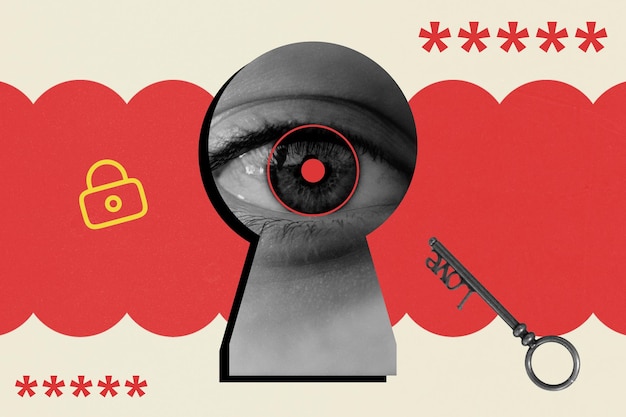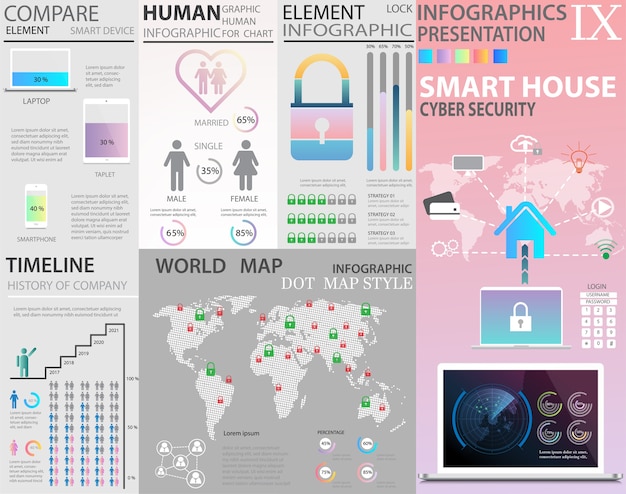Navigating New Federal Data Privacy Regulations: A 2025 Guide

AD
New Federal Regulations on Data Privacy: What the Latest Changes Mean for You in 2025 is set to significantly impact how businesses handle consumer data, mandating greater transparency, security, and control for individuals over their personal information, with potential fines for non-compliance.
The landscape of data privacy is constantly evolving, and 2025 is poised to bring significant changes with the introduction of New Federal Regulations on Data Privacy: What the Latest Changes Mean for You in 2025. These regulations are designed to strengthen consumer rights, increase transparency, and hold organizations accountable for protecting personal information. Understanding these changes is crucial for both businesses and individuals to navigate the digital world safely and responsibly.
AD
Understanding the Impetus Behind New Federal Data Privacy Regulations
The surge in data breaches and misuse of personal information have fueled the demand for stronger data privacy regulations. The public is increasingly aware of the value of their data and the need for greater control over how it’s collected, used, and shared. This has led policymakers to prioritize the development and implementation of comprehensive data privacy laws.
The current patchwork of state laws creates complexity for businesses operating across state lines. Federal regulations aim to streamline compliance efforts and establish a consistent national standard for data privacy protection. This will not only benefit consumers but also provide businesses with greater clarity and predictability.
AD

Key Drivers of Change
Several factors have contributed to the push for new federal data privacy regulations:
- Increased Data Breaches: High-profile data breaches have exposed the vulnerabilities of existing security measures and the need for enhanced protection.
- Growing Consumer Awareness: Consumers are more informed about data privacy risks and demand greater transparency and control.
- Technological Advancements: Emerging technologies like AI and IoT raise new data privacy concerns that require regulatory attention.
- International Standards: The influence of international regulations like GDPR has prompted the U.S. to align its data privacy framework with global best practices.
The confluence of these factors has created a conducive environment for the introduction of comprehensive federal data privacy regulations in 2025.
In conclusion, the growing need for enhanced data protection, driven by data breaches, consumer awareness, technological advancements, and international standards, is the primary impetus behind the new federal data privacy regulations. These regulations aim to provide a consistent national framework for safeguarding personal information.
Key Provisions of the New Federal Regulations
The New Federal Regulations on Data Privacy: What the Latest Changes Mean for You in 2025 encompasses a wide range of provisions designed to protect consumer data. These provisions address various aspects of data collection, usage, and sharing, and they impose specific obligations on organizations that handle personal information.
Understanding these key provisions is essential for businesses to ensure compliance and for individuals to exercise their rights under the new regulations.
Data Minimization and Purpose Limitation
The regulations emphasize the principles of data minimization and purpose limitation:
- Data Minimization: Organizations should only collect data that is necessary for a specified purpose.
- Purpose Limitation: Data should only be used for the purpose for which it was collected, and further use requires consent.
- Transparency: Data practices should be transparent and understandable to data subjects.
These provisions aim to prevent the excessive collection and misuse of personal data.
Enhanced Consumer Rights
The New Federal Regulations on Data Privacy: What the Latest Changes Mean for You in 2025 grants consumers several new rights:
- Right to Access: Consumers can request access to their personal data held by an organization.
- Right to Correction: Consumers can request that inaccurate or incomplete data be corrected.
- Right to Deletion: Consumers can request that their personal data be deleted under certain circumstances.
- Right to Data Portability: Consumers can request to receive their data in a portable format.
- Right to Opt-Out: Consumers can opt-out of the sale or sharing of their personal data.
These rights empower consumers to control their data and hold organizations accountable.
In summary, the key provisions of the new federal regulations focus on protecting consumer data through data minimization, purpose limitation, and enhanced consumer rights. These provisions are designed to ensure that data is collected and used responsibly and that individuals have greater control over their personal information.

Impact on Businesses and Organizations
The New Federal Regulations on Data Privacy: What the Latest Changes Mean for You in 2025 will have a significant impact on businesses and organizations. These regulations require organizations to adopt new policies, procedures, and technologies to comply with the law. The changes will affect various aspects of their operations, from data collection and storage to data sharing and security.
Organizations that fail to comply with the regulations may face substantial fines and reputational damage. Therefore, it is crucial for businesses to understand the requirements and take proactive steps to adapt their practices.
Compliance Requirements
To comply with the new federal data privacy regulations, businesses must:
- Update Privacy Policies: Revise privacy policies to reflect the new regulations and provide clear, transparent information to consumers.
- Implement Data Security Measures: Implement robust data security measures to protect personal information from unauthorized access, use, or disclosure.
- Train Employees: Train employees on data privacy principles and compliance requirements.
- Establish Data Subject Request Procedures: Establish procedures for handling data subject requests, such as access, correction, and deletion requests.
- Conduct Data Protection Impact Assessments: Conduct data protection impact assessments to identify and mitigate privacy risks associated with new projects or technologies.
- Appoint a Data Protection Officer: Appoint a Data Protection Officer (DPO) to oversee data privacy compliance efforts.
These compliance requirements are essential for organizations to demonstrate their commitment to data privacy and avoid penalties.
In conclusion, the new federal data privacy regulations will have a profound impact on businesses and organizations, requiring them to update their policies, implement security measures, train employees, and establish data subject request procedures. Compliance is not only a legal obligation but also a strategic imperative for building trust and maintaining a competitive advantage.
Enforcement and Penalties
The New Federal Regulations on Data Privacy: What the Latest Changes Mean for You in 2025 comes with significant enforcement mechanisms and penalties for non-compliance. These measures are designed to ensure that organizations take data privacy seriously and adhere to the regulations. The enforcement will be carried out by a designated federal agency, which has the authority to investigate and prosecute violations.
The penalties for non-compliance can be substantial, including fines, injunctions, and other remedies. The severity of the penalties will depend on the nature and extent of the violation.
Enforcement Agency
The enforcement of the new federal data privacy regulations will be overseen by a designated federal agency. This agency will be responsible for:
- Investigating Complaints: Receiving and investigating complaints from consumers about alleged violations.
- Conducting Audits: Conducting audits of organizations to assess compliance with the regulations.
- Issuing Guidance: Providing guidance and interpretations of the regulations to help organizations comply.
- Enforcing Penalties: Imposing penalties on organizations that violate the regulations.
The enforcement agency will play a critical role in ensuring that the new regulations are effective and that consumers’ data privacy rights are protected.
Potential Penalties
Organizations that violate the New Federal Regulations on Data Privacy: What the Latest Changes Mean for You in 2025 may face a range of penalties:
- Financial Penalties: Substantial fines for each violation, which can amount to millions of dollars for large organizations.
- Injunctions: Court orders requiring organizations to cease certain activities or implement specific measures to comply with the regulations.
- Consumer Redress: Requirements to compensate consumers who have been harmed by violations of the regulations.
- Reputational Damage: Damage to an organization’s reputation, which can lead to loss of customers and business opportunities.
These penalties serve as a strong deterrent against non-compliance and underscore the importance of data privacy.
In summary, the new federal data privacy regulations will be enforced by a designated federal agency, which has the authority to investigate complaints, conduct audits, issue guidance, and impose penalties. The potential penalties for non-compliance include substantial fines, injunctions, consumer redress, and reputational damage. These measures are designed to ensure that organizations take data privacy seriously and comply with the regulations.
Preparing for the Future of Data Privacy
The introduction of New Federal Regulations on Data Privacy: What the Latest Changes Mean for You in 2025 represents a significant step toward strengthening data privacy protections. However, data privacy is an evolving field, and organizations need to stay ahead of the curve to ensure ongoing compliance and build trust with consumers.
Preparing for the future of data privacy requires a proactive and forward-thinking approach. Organizations need to continually assess their data practices, update their policies, and invest in new technologies to protect personal information.
Best Practices for Data Privacy
To prepare for the future of data privacy, organizations should adopt the following best practices:
- Implement a Privacy-First Culture: Embed data privacy principles into the organization’s culture and decision-making processes.
- Conduct Regular Privacy Audits: Conduct regular privacy audits to identify and address potential vulnerabilities.
- Invest in Privacy-Enhancing Technologies: Invest in privacy-enhancing technologies like encryption, anonymization, and pseudonymization.
- Stay Informed About Emerging Trends: Stay informed about emerging trends in data privacy, such as AI ethics and data localization.
By adopting these best practices, organizations can demonstrate their commitment to data privacy and build long-term trust with consumers.
In conclusion, preparing for the future of data privacy requires a proactive and forward-thinking approach. Organizations should implement a privacy-first culture, conduct regular privacy audits, invest in privacy-enhancing technologies, and stay informed about emerging trends. By adopting these best practices, organizations can ensure ongoing compliance and build trust with consumers.
How Individuals Can Benefit from the New Regulations
The New Federal Regulations on Data Privacy: What the Latest Changes Mean for You in 2025 aims to empower individuals with greater control and transparency over their personal data. These regulations provide individuals with several rights that enable them to protect their privacy and hold organizations accountable.
Understanding these rights and how to exercise them is essential for individuals to fully benefit from the new regulations.
Exercising Your Rights
Individuals can exercise their rights under the New Federal Regulations on Data Privacy: What the Latest Changes Mean for You in 2025 by taking the following steps:
- Review Privacy Policies: Review the privacy policies of organizations to understand how they collect, use, and share your data.
- Submit Data Subject Requests: Submit data subject requests to access, correct, or delete your personal data.
- Opt-Out of Data Sharing: Opt-out of the sale or sharing of your personal data for targeted advertising.
- File Complaints: File complaints with the enforcement agency if you believe your rights have been violated.
By taking these steps, individuals can actively protect their data privacy.
In summary, the new federal data privacy regulations aim to empower individuals with greater control and transparency over their personal data. Individuals can benefit from these regulations by understanding and exercising their rights to review privacy policies, submit data subject requests, opt-out of data sharing, and file complaints. By taking these steps, individuals can actively protect their data privacy and hold organizations accountable.
| Key Point | Brief Description |
|---|---|
| 🛡️ Data Minimization | Collect only necessary data for specific purposes. |
| 🔑 Consumer Rights | Access, correct, delete, and opt-out of data sharing. |
| ⚖️ Enforcement | Federal agency oversees compliance with penalties. |
| 💼 Business Impact | Requires updated policies and stronger data security. |
Frequently Asked Questions (FAQ)
▼
Data minimization is the principle of collecting only the personal data that is strictly necessary for a specific, legitimate purpose. This protects your privacy by limiting the amount of information about you that is stored and processed, reducing the risk of misuse or unauthorized access.
▼
Under the new regulations, you have the right to access your personal data, request corrections of inaccuracies, request deletion of your data under certain circumstances, obtain your data in a portable format, and opt-out of the sale or sharing of your data.
▼
A designated federal agency will oversee enforcement by investigating complaints, conducting audits, and issuing guidance. Penalties for non-compliance can include substantial fines, injunctions, requirements for consumer redress, and damage to the organization’s reputation.
▼
Businesses should update their privacy policies, implement robust data security measures, train employees on data privacy principles, establish procedures for handling data subject requests, conduct data protection impact assessments, and consider appointing a Data Protection Officer (DPO).
▼
You can exercise your rights by reviewing privacy policies, submitting data subject requests to access or correct your data, opting-out of data sharing for advertising, and filing complaints with the enforcement agency if you believe your rights have been violated.
Conclusion
The advent of New Federal Regulations on Data Privacy: What the Latest Changes Mean for You in 2025 marks a pivotal shift towards prioritizing data protection and empowering individuals. By understanding and adhering to these regulations, businesses can foster trust with consumers, and individuals can take control of their personal information, ensuring a more secure and transparent digital environment for all.